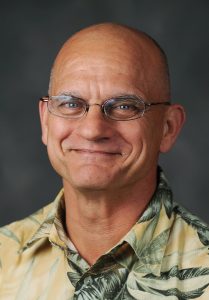Professor of Sociology Tom Arcaro recently penned an opinion column about the charges levied against the government of Myanmar being considered in the U.N.-based International Court of Justice. The column was published by The Rohingya Post.
By Tom Arcaro
This is a story of a man, born in Burma, a strong young Rohingya known as “Esoup”, the beloved son of Liyakut Ali.

Liyakut Ali was formerly a soldier in the military in the northern Rakhine state, in the Maung Daw area called Bolibazar. He served the nation for years, back in the 1960s and 1970s, a time when most people were not concerned with creeds and backgrounds. During this time in Burma, all ethnicities enjoyed the same rights and opportunities without discrimination.
When the military junta took control of the country, Liyakut Ali was kicked out of his position. The situation had changed to evil lawlessness, chaos and racism. The Burmese government deliberately created and perpetuated hatred campaigns against Rohingya. Their oppressive actions and policies unfolded with the clear purpose of eliminating the Rohingya from the land where they had lived in relative peace for countless generations. According to the official records, Esoup’s, father was an NRC (National Registration Card) holder in Burma, but his rights were stripped slowly stripped away by putting in place oppressive laws and policies directed at him and the Rohingya because of their religion; they were Muslim.
Esoup was always a tenderhearted and a peace-loving Rohingya. He cares for others and yearns to enjoy peace as a Rohingya, but now returning to his home in Burma must remain only a distant and delusional dream.
As the world now knows -and as verified by the United Nations- in August of 2017 a terrible genocidal massacre against Rohingya by Burmese government took place. Though he survived, what Esoup saw and experienced has left deep and painful mental scars. Words can never fully describe the horror he witnessed.
In his presence, and in front of her family and relatives, a teenage girl was gang-raped and murdered then by the Burmese military. He witnessed infants being tossed alive into fires, a mother’s breast cut off as she attempted to breastfeed her child, aged people and disabled burnt alive in the flames of their own houses. The list goes on. He recalls,
“My hands and legs were tied and then the Burmese military poured boiling water on my whole body, this after I had been already tortured seriously by savage military. I finally fell unconscious. After a few minutes, I woke up and in the dim light sighted my house which was burning. The villagers were screaming for help, and it made me heartbroken that I was unable to move. Finally, I was able to crawl away and get refuge from the killing fields.”
Fortunately, a large number of Rohingya facing the same oppression were fleeing to Bangladesh, and Esoup’s broken body was picked and brought to Bangladesh by fellow refugees.
In the refugee camp in Bangladesh, humanitarian medical staff from an NGO treated his injuries for many months. Though his physical wounds have been mostly healed, the deep emotional trauma remains. He remains mentally unbalanced, haunted by his experiences. Today, we can see him on the narrow streets in the Bangladeshi refugee camp, unable to care for himself, a sick and broken man.
Tragically, there are thousands of stories just like Esoup’s, many even more disturbing. The impact of what happened to the Rohingya in August of 2017 can be seen in the worn faces of men like Esoup. The fact that he is one of the lucky ones -he was not killed, thrown into a fire to burn- is the very definition of bittersweet. He is alive but not living. Those not killed in the genocide live with their dignity diminished, tortured by memories of what they saw.
In the coming days, countless stories will be told in the Hague. There, officials from the highest levels of the Myanmar government and military bureaucracies will defend their actions in the UN-based International Court of Justice (ICJ). Stories like Esoup’s will be told, but will they be heard?
This is an important, even critical case for the world to watch closely. The defenders who claim ‘fake news’ must be challenged by all who hear this case. The Rohingya genocide must be acknowledged.
The world will be watching, and our humanity is in the balance.
—
Views expressed in this column are the author’s own and not necessarily those of Elon University.


